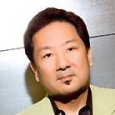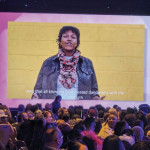America is hurting, more people are unemployed, and the future is uncertain. This year’s United States Conference on HIV/AIDS (USCHA) will hold a Virtual HIV Jobs Fair. The meeting is free for the first 4,000 participants; however, you will need to register because we are almost sold out. (The USCHA virtual conference takes place October 19 to 21.)
What Is A Virtual HIV Jobs Fair?
USCHA and our online jobs bank are working to be a “central” depository for HIV job openings, particularly jobs created to end the HIV epidemic in America. With over $300 million in new funding just for this year, our movement will have thousands of new professional full-time positions.
A virtual HIV jobs fair is our response to the need to be socially distant while looking for employment. Specific times will be set aside during the 2020 conference for participants to go the Virtual Exhibit Hall to meet with organizations with job openings. NMAC is giving free exhibit booths to the 57 jurisdictions that are targeted in this federal effort. Since these health departments will receive the lion’s share of the new funding, they or other organizations in their jurisdictions will have the most jobs to fill.
Participants attending the virtual jobs fair will be able to download job openings and upload their resume. They can also schedule Zoom informational interviews. Access to a computer or smartphone and the internet will be needed to participate.
Jobs=Racial Justice
Full-time professional employment for the communities hardest hit by HIV equals racial and social justice for communities disproportionately impacted by racism, transphobia, homophobia and sexism. We have the ability to transform the discussion of racial justice in America by just doing our jobs and hiring people from the communities hardest hit by HIV.
When NMAC set out to work with the administration to end the epidemic, our unstated goal was jobs and economic development for communities that shoulder the greatest burden of the epidemic. As we all know, our work to end HIV will only happen when we reach people living with HIV, people of color, gay men, Black women, drug users, and the transgender community.
Hiring People from Communities Hardest Hit by HIV
In our fight for racial justice, it is important for employers to understand the impact that racism has on the communities our efforts need to reach. College degrees and previous professional employment are not a reality for too many in our communities. Drug and sex worker arrests are too common in communities that are over policed and under protected. White standards for employment are how our world keeps White people in leadership.
Sometimes you have to take a risk and hire staff who may not have all the paper credentials but do have the life experience. For many government agencies this is impossible. That is why it is important to outsource funding to community-based organizations set up by and for those communities. If we’ve learned nothing else, the last weeks/months have shown the great distrust between people and their government.
USCHA Needs Workshops on Recruiting & Hiring
To support people looking for jobs and to help organizations looking to hire, USCHA needs abstracts on the following topics:
- Resume Writing for People with Nontraditional Work Experiences
- How to Apply for Federal Employment
- How to Recruit Leaders from Communities Hardest Hit by HIV
- Returning to Work Force After an Extended Absence
Abstracts are due July 17th. Please consider submitting abstracts to help people find new jobs or for employers to learn how to recruit from hard to reach communities.
We are living in strange and unusual times. Between COVID-19 and Black Lives Matter, we are asked to reexamine our relationships to health and race. Since HIV sits in that same intersection, our future work can either demonstrate that we have learned the lessons or that history will repeat itself until we do.
Yours in the struggle,
Paul Kawata








Comments
Comments